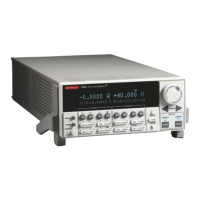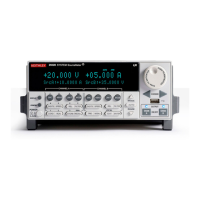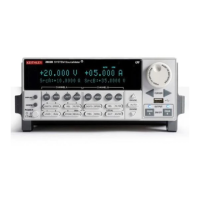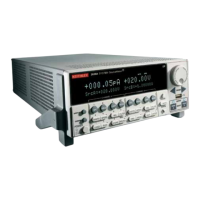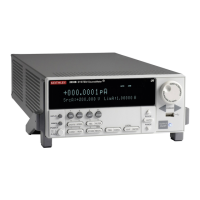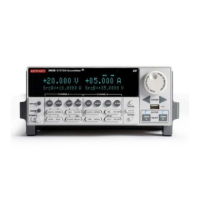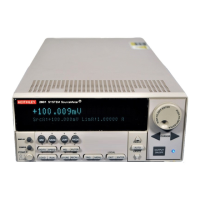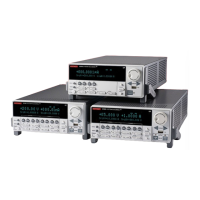A-43
APPENDIX A
Scripts
Section 4. FET Tests
Program 9. Common-Source Characteristics
--[[
FET_Comm_Source(): USES TABLES
This program applies a bias to the gate-source of an FET (VGS) and sweeps voltage on the
drain-source (VDS). The VDS and ID values at each VGS bias are then printed.
Required equipment:
(1) Dual-channel Keithley Series 2600 System SourceMeter instrument
(1) SD210 N-Channel MOSFET
Running this script creates functions that can be used to measure the common source
characteristics of
FETs. The default values are for an N-channel MOSFET type SD210.
The functions created are:
1. FET_Comm_Source(vgsstart, vgsstop, vgssteps, vdsstart, vdsstop, vdssteps)
--Default values vgsstart = 0, vgsstop = 10V, vgssteps = 5, vdstart = 0V,
vdstop = 10V, vdsteps = 100
2. Print_Data(vgssteps,vdssteps, vds_data,Id_data, vgs_data)
See detailed information listed in individual functions.
1) From Test Script Builder
- At the TSP> prompt in the Instrument Control Panel, type FET_Comm_Source()
2) From an external program
- Send the entire program text as a string using standard GPIB Write calls.
Rev1: JAC 6.18.2007
]]--
------------------ Keithley TSP Function ------------------
function FET_Comm_Source(vgsstart, vgsstop, vgssteps, vdsstart, vdsstop, vdssteps)
--Configure SMUB to source a bias
--voltage on the gate-source (Vgs) and SMUA performs a voltage sweep on the drain-source
(Vds) from start to stop in a --user-defined number of steps. SMUB then increments to next
bias value and continues to the stop value.
--Returns measured Vgs, Vds, and Id values.
--Global variables
local l_vrange = 40 --

